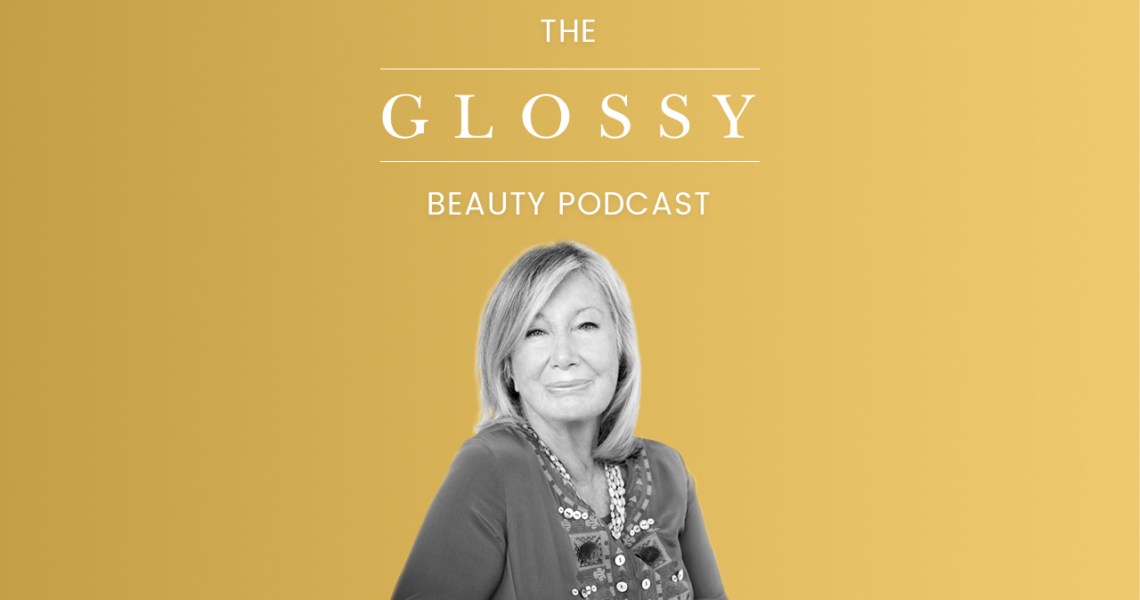Subscribe: Apple Podcasts | Stitcher | Google Play | Spotify
Sylvie Chantecaille has no illusions about the commercial difficulties presented by the coronavirus pandemic.
“Basically our business went dead overnight,” she said of her eponymous prestige beauty company, Chantecaille, where she serves as president and CEO.
And whereas her industry competitors anticipate a run back to stores once the world-spanning practices of social distancing soften, Chantecaille isn’t so sure.
“Before we could figure out ‘Neiman’s will buy this, Nordstrom will buy that, Saks will buy this.’ Now we have no idea. We don’t know what they’re going to buy, if they can buy, if there’s anyone to buy. And if they’re going to be there!” Chantecaille said on the Glossy Beauty Podcast.
She added that the beauty business is now focusing on survival, and assumed that its revenue forecast for 2020 is down 30% (the company doubled its retail sales in 2018 to $200 million, and has grown since then, according to Chantecaille).
At the same time, the company’s forced focus on e-commerce has seen that side of the business mushroom. “We did last month the amount of money we do in six months normally,” Chantecaille said.
That focus concerns Asian markets in particular, where the company is working with KOLs in China and doing direct videos on Taobao.
Ahead, Chantecaille talked about how she considers Amazon “the death of retail,” her ideas for Chantecaille’s future product direction and how people want to wear makeup even just for video calls.
Here are a few highlights from the conversation, which have been lightly edited for clarity.
There’s room for top-notch service in video consulting
“If you really go back to the original [reason] of why stores are luxurious, it’s because of service. They have better service than the others. We spend a lot of money on staffing, training, all kinds of ways to make these people really able to talk and take care of people in a way, in most stores you couldn’t get. That was the original luxury: service. Now we have to transfer that service in another medium. It’s not going to be the one-on-one in the store, it’s going to have to be the one-on-one as we talk right now [over video call]. That’s what we’re doing. We’re training our people, we’re doing videos, and with this, discovering amazing talents. It’s really fun to see people that you know do a really good job that way. We’re seeing a way to work that I think is going to work in the future.”
Retail is in real trouble
“Retailers are over-extended, as we know. They’re in trouble, financially, as we know. And this is going to be a terrible thing for them. They’re going to stay closed for three months, maybe four. Some people say there will be a frenzy of buying when finally [they can reopen]. I don’t feel that. I feel we’re all changing, and we’re thinking differently, and staying home with your family for a month, maybe two or more, is going to completely change the way we think.”
Don’t assume a post-pandemic run to the stores
“Even my Korean friends are saying ‘Make sure we have a lot of stock because we’re going to see a lot of sales after [the pandemic]’. I don’t know. When I say 45% of our business was Asian, I meant a lot of customers were coming in all the stores here, in England, everywhere. They were buying because they were traveling. Traveling Chinese [customers were] a very strong business for all of us. That died overnight. When they start traveling again, of course they’ll buy. But I think in many ways it won’t be the same craziness.”
Big uncertainties with buyers
“Before we could figure out ‘Neiman’s will buy this, Nordstrom will buy that, Saks will buy this.’ Now we have no idea. We don’t know what they’re going to buy, if they can buy, if there’s anyone to buy. And if they’re going to be there! So we have to think radically different. We’re focusing all our energy, really, on the web — in Hong Kong, in Korea, in Taiwan. And we’re working very hard in China with KOLs and doing direct videos on Taobao.”




